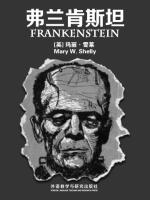Frankenstein Review
用户820555
Mary Shelley's "Frankenstein": A Timeless Beacon of Gothic
Horror and Ethical Warning Mary Shelley's Frankenstein transcends its
Gothic origins to deliver a profoundly unsettling and enduring
masterpiece. Far more than a simple monster story, it explores the
devastating consequences of unchecked scientific ambition and the
fundamental human need for connection. Dr. Victor Frankenstein's
obsession with creating life, bypassing natural order, leads not to
triumph but to utter horror. His immediate rejection of his grotesque
creation – born innocent yet terrifying – sets in motion a tragic chain
of events. Shelley brilliantly forces readers to confront uncomfortable
questions: Who is the true monster? Is it the abandoned, intellectually
curious Creature, driven to violence by relentless societal rejection
and his creator's cruelty? Or is it Victor himself, consumed by pride,
cowardice, and the refusal to take responsibility for his actions? The
novel's power lies in its dual narrative. We witness Victor's descent
into obsession and guilt, but it's the Creature's eloquent,
heartbreaking plea for understanding and companionship that provides the
story's deepest pathos. His famous lament – *"I ought to be thy
Adam; but I am rather the fallen angel"* – underscores the tragedy
of his existence. Shelley masterfully employs sublime landscapes and a
chilling atmosphere, but *Frankenstein* endures because of its core
themes: the dangers of playing God, the weight of parental (or creator)
neglect, the destructive power of isolation, and the societal fear of
the "Other." It remains a vital, haunting exploration of
scientific ethics and human responsibility, as relevant today as in 1818.



 京公网安备 11010802032529号
京公网安备 11010802032529号